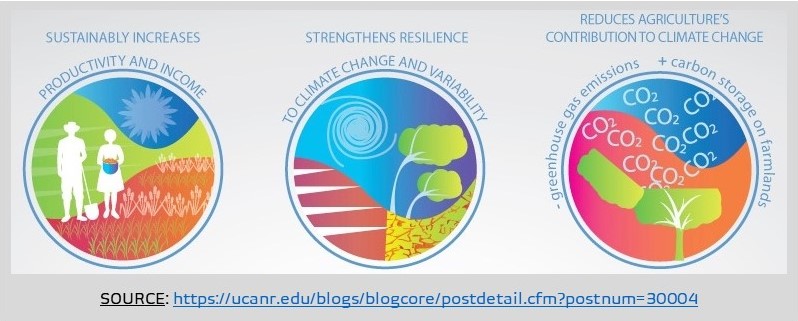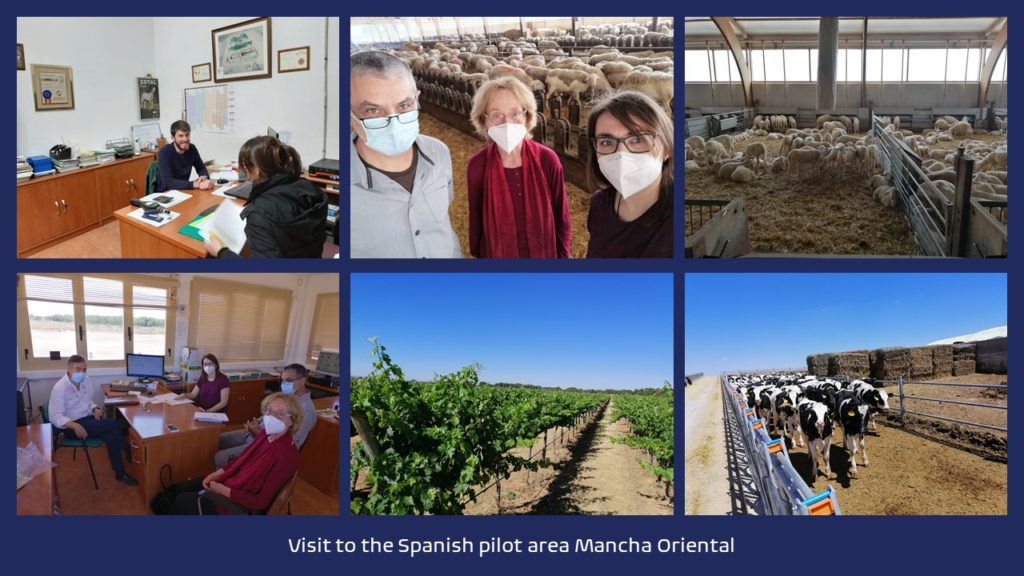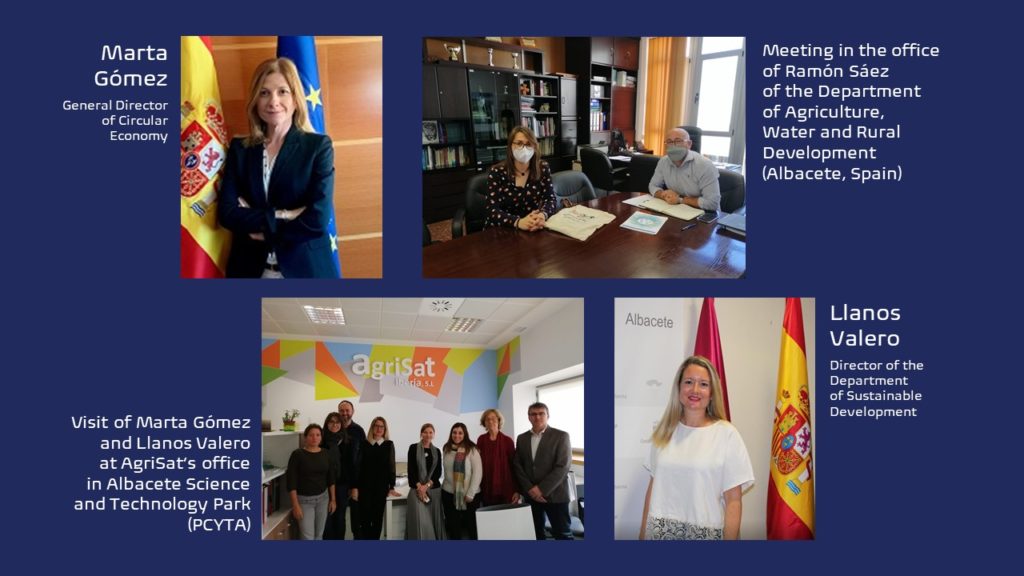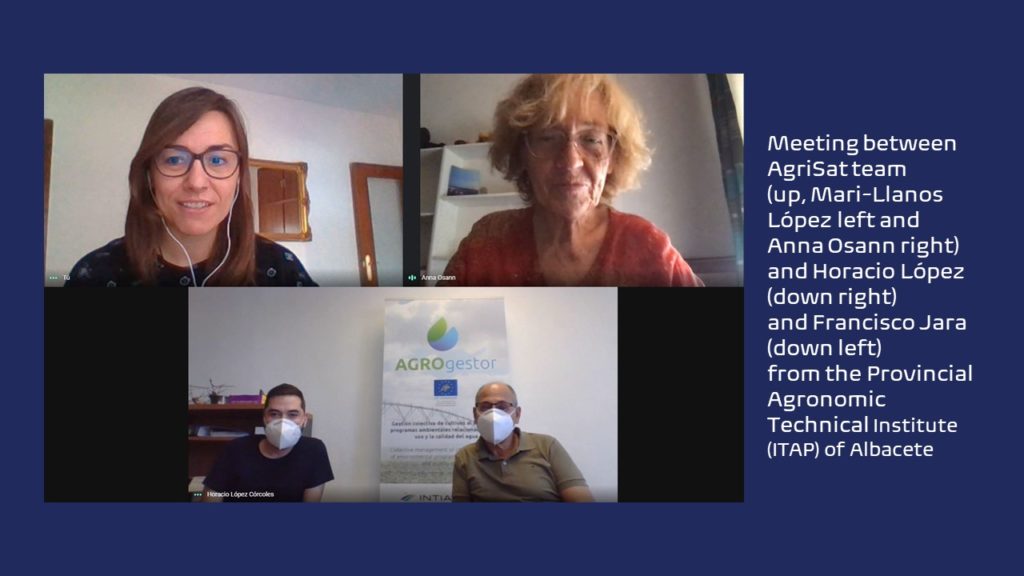- Editorial
- Resilient Agriculture
- Project Pilots
- Spanish stakeholder meetings
- What’s new with STARGATE
- Conferences & Events
- Network of Interest
- Publications to read
- Stay updated
Editorial
We welcome you back on our second STARGATE project newsletter!
In our latest issue you can learn more on STARGATE project progress and news. Get our insights on Resilient Agriculture and find out more about the project pilots. Read also the report on the stakeholder meetings and the challenges identified in the Spanish pilot area.
Don’t forget to visit our YouTube channel and view our new videos. Stay tuned with our project website and social media and browse our news and project progress.
Follow us and stay informed on the latest project developments... 
![]()
![]()

Resilient Agriculture
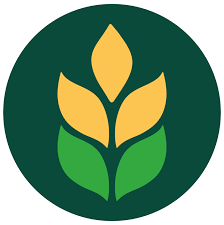 As the global human population is expected to expand to over 9 billion by 2050, we will be bound to find ways to sufficiently feed this population while at the same time decrease the environmental impact of agriculture.
As the global human population is expected to expand to over 9 billion by 2050, we will be bound to find ways to sufficiently feed this population while at the same time decrease the environmental impact of agriculture.
This challenge will have to be addressed whilst global change will be creating new circumstances to which agriculture must respond. Many proposals to accomplish this twofold goal - of increasing agricultural production while reducing its environmental impact – are focusing on increasing the efficiency of agricultural production in relation to resource use and to unintended outcomes such as water pollution, biodiversity loss, and greenhouse gas emissions. While increasing production efficiency is undoubtedly necessary, it is unlikely to be sufficient and may in some instances reduce long-term agricultural resilience; for example, by degrading soil and increasing the fragility of agriculture to pest and disease outbreaks and climate shocks [1].
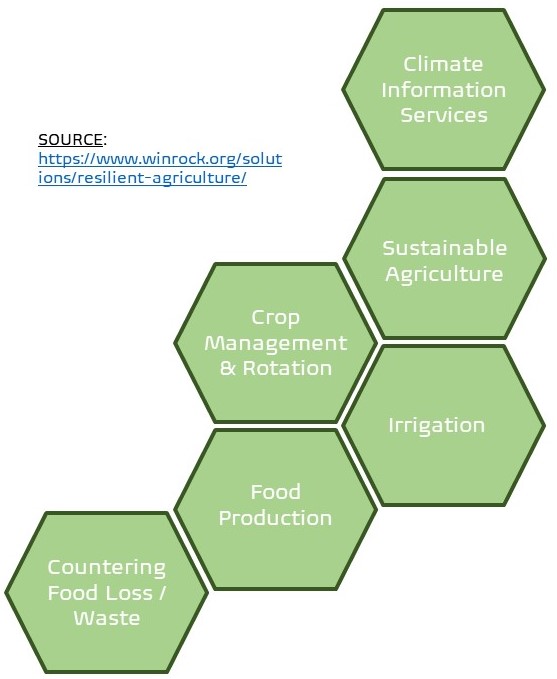 Resilient agriculture looks at how to balance between food production and natural resources management, whilst at the same time deal with risks and uncertainty in agricultural production, as well as providing a livelihood base for the rural population. Resilient agriculture goes beyond the technical sphere and tackles issues such as the role and involvement of public, private, and civil entities to include social, economic, environmental, and political aspects [2].
Resilient agriculture looks at how to balance between food production and natural resources management, whilst at the same time deal with risks and uncertainty in agricultural production, as well as providing a livelihood base for the rural population. Resilient agriculture goes beyond the technical sphere and tackles issues such as the role and involvement of public, private, and civil entities to include social, economic, environmental, and political aspects [2].
The concept of resilience in agriculture is also becoming more relevant in the context of climate change, which is likely to increase the number and intensity of certain shocks, while also putting pressure on food production and productivity. To this end Climate Smart Agriculture (CSA) is one of the components for achieving climate resilience. CSA integrates technologies that increase agricultural productivity and promote sustainability.
Resilience literally means "coming back to normal". In the climate change scenario, holistic adaptation, mitigation and resilience are the means to reduce the impact of climate change [3].
Resilience in agriculture specifically focuses on what builds capacity to persist, adapt, and transform in a world characterized by uncertainty and complexity, where agriculture needs to respond to a rapidly and profoundly changing world. To encourage an agriculture that is both resilient and sustainable, radically new approaches to agricultural development are needed. These approaches must build on a diversity of solutions operating at nested scales, and they must maintain and enhance the adaptive and transformative capacity needed to respond to disturbances and avoid critical thresholds. Finding such approaches will require that we encourage experimentation, innovation, and learning [1].
STARGATE RESILIENT FARMING BY ADAPTIVE MICROCLIMATE MANAGEMENT will develop a breakthrough, multiscale and holistic climate-smart agriculture methodology, capitalizing innovations in the field of microclimate and weather risk management, as well as in the field of landscape design to achieve resilient farming.
[1] https://www.thesolutionsjournal.com/article/toward-a-more-resilient-agriculture/
[2] https://www.researchgate.net/publication/332554083_Resilient_Agricultural_Practices
[3] https://ccafs.cgiar.org/fr/blog/can-climate-smart-agriculture-also-be-resilient#.Xz0Fm-gzaUk
Presentation of the STARGATERS -
the STARGATE pilots
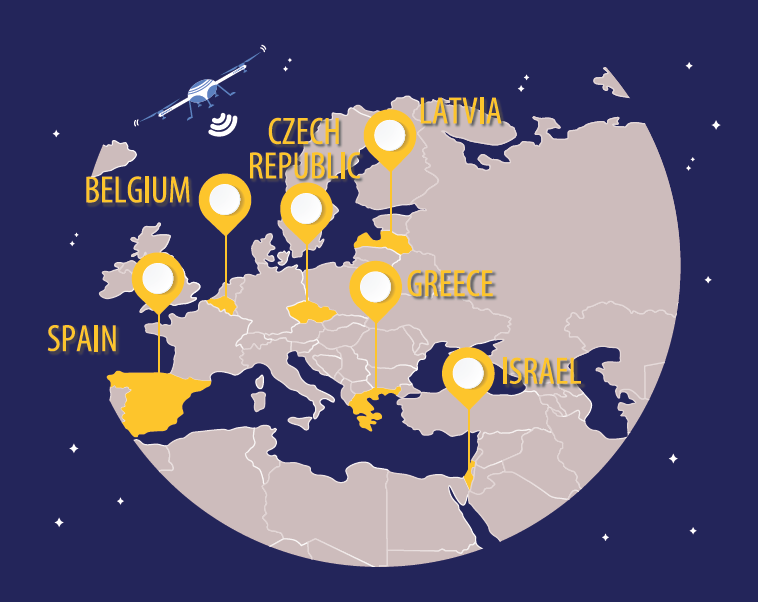 STARGATE aims at developing, testing, implementing and showcasing a framework that will improve the resilience of farming systems, to variable climatic conditions and extreme weather events, while it will deliver scientific sound results to guide policymakers in landscape planning and long-term adaptation of the modern agriculture to climate change.
STARGATE aims at developing, testing, implementing and showcasing a framework that will improve the resilience of farming systems, to variable climatic conditions and extreme weather events, while it will deliver scientific sound results to guide policymakers in landscape planning and long-term adaptation of the modern agriculture to climate change.
A comprehensive series of field-scale Pilots will be carried out across Europe, addressing the range of STARGATE technologies, farming systems, climate and soils. Stakeholder demonstrations of the technologies and systems will be held on a number of these commercial-scale farms.
![]() The Czech Pilot (1) for instance is divided into three different use cases. It includes Adaptation to climatic changes on the level of regions (landscape management - use case 3) and farms (irrigation - use case 1, and protection - use case 2). Pilots focus on the utilization of local and regional climatic models in relation with land use and yield potential on recommendation for changing practices and land use.
The Czech Pilot (1) for instance is divided into three different use cases. It includes Adaptation to climatic changes on the level of regions (landscape management - use case 3) and farms (irrigation - use case 1, and protection - use case 2). Pilots focus on the utilization of local and regional climatic models in relation with land use and yield potential on recommendation for changing practices and land use.
![]() The Greek Pilot (2) also implements 2 use cases. The first use case regards an area with different crop types cultivated across a heterogeneous landscape aiming at the documentation of different climate zones of the area, the identification of climatic pattern changes and the promotion of sustainable and climate-smart farming practices on the field. The second use case focuses on Livestock adaptation, as an important source of GHG emissions. The pilot tackles the need to develop a system that controls properly, according to the animals needs, the microclimate inside the livestock building.
The Greek Pilot (2) also implements 2 use cases. The first use case regards an area with different crop types cultivated across a heterogeneous landscape aiming at the documentation of different climate zones of the area, the identification of climatic pattern changes and the promotion of sustainable and climate-smart farming practices on the field. The second use case focuses on Livestock adaptation, as an important source of GHG emissions. The pilot tackles the need to develop a system that controls properly, according to the animals needs, the microclimate inside the livestock building.
![]() Two use cases are also examined in the Israeli Pilot (3). The first use case is working towards correcting irregularities in irrigation, as growers must invest significant time in reviewing irrigation meter data. There is a need to provide a system that can inform the operator on time about irrigation irregularities so that the irregularities can be corrected in a timely manner. The other use case will tackle optimal herd management, based on adjustment of cows’ diet quality and availability, to cow needs using hi-technology systems. The pilot will examine the cattle behavior also at different elevations.
Two use cases are also examined in the Israeli Pilot (3). The first use case is working towards correcting irregularities in irrigation, as growers must invest significant time in reviewing irrigation meter data. There is a need to provide a system that can inform the operator on time about irrigation irregularities so that the irregularities can be corrected in a timely manner. The other use case will tackle optimal herd management, based on adjustment of cows’ diet quality and availability, to cow needs using hi-technology systems. The pilot will examine the cattle behavior also at different elevations.
![]() Adverse weather conditions and extreme events have captured the interest of the Flanders Belgium Pilot (4). The focus of this pilot will be on the adaptation to climate change in the fruit and vegetable sector from the field and farm to the landscape and regional level.
Adverse weather conditions and extreme events have captured the interest of the Flanders Belgium Pilot (4). The focus of this pilot will be on the adaptation to climate change in the fruit and vegetable sector from the field and farm to the landscape and regional level.
![]() Climate change is already happening in Pilot 5, the Vidzeme Planning Region (Latvia), as it happens in many other EU regions, and each year extreme events become more and more noticeable. The goal of the pilot is to provide local stakeholders as well as regional and national level parties with a reliable long-term weather prediction tool combined with a crop loss calculator and local mitigation toolbox.
Climate change is already happening in Pilot 5, the Vidzeme Planning Region (Latvia), as it happens in many other EU regions, and each year extreme events become more and more noticeable. The goal of the pilot is to provide local stakeholders as well as regional and national level parties with a reliable long-term weather prediction tool combined with a crop loss calculator and local mitigation toolbox.
![]() The La Mancha area where Pilot 6 is showcased is a flat area in the South-East of Spain at an average elevation of 650msl. It comprises 100,000 ha of irrigated land, facing challenges of diminishing water levels in the aquifer due to groundwater abstraction, frequent drought conditions, and high risk of water and soil contamination.
The La Mancha area where Pilot 6 is showcased is a flat area in the South-East of Spain at an average elevation of 650msl. It comprises 100,000 ha of irrigated land, facing challenges of diminishing water levels in the aquifer due to groundwater abstraction, frequent drought conditions, and high risk of water and soil contamination.
Spanish stakeholder meetings
The Spanish pilot area (Mancha Oriental) is one of the STARGATE pilots that will be carried out in 6 countries and stakeholder meetings have been the focus of its first-year activities. These meetings were held with different stakeholders (organizations, farms, associations etc.) that are interested in the services that STARGATE is developing. Stakeholders are at the heart of the STARGATE project as it is for them and with them that the project develops tools and services to strengthen the resilience of farming systems.
As the current COVID-19 situation has restricted face-to-face meetings, most of these meetings were held by means of teleconferencing.
In the following, a summary of the meetings held in the Spanish pilot area is presented. The main stakeholders there are the farm holdings Dehesa de Los Llanos, Agropecuaria, and the Regional Government of Castilla-La Mancha.
AgriSat has visited the pilot farms and talked with farm managers in order to identify the needs and challenges they are facing and thus shape STARGATE tools to their needs. (1st meeting, 2nd meeting).
AgriSat has also held meetings with policy makers and organizations related to agriculture, livestock farming, research and landscape management. Within the meeting held at the regional government of Castilla-La Mancha, the opportunity to speak with Marta Gómez Palenque (General Director of Circular Economy) was presented. In the local government of the province of Albacete a meeting with Llanos Valero (Director of the Department of Sustainable Development) and Ramón Sáez (Provincial Delegate of the Department of Agriculture, Water and Rural Development) was held.
A meeting was also held with Horacio López and Francisco Jara, involved in agricultural research and farmer advisory services, from the Provincial Agronomic Technical Institute (ITAP) of Albacete.
The challenges identified by the stakeholders in the Spanish pilot area can be summarized as follows:
- Water for agriculture, livestock or industry comes mainly from an underground aquifer under regional management. The common challenges in this area are related with:
- the nitrate pollution of the aquifer (a Nitrate Vulnerable Zone),
- the costs of electricity necessary to pump the water from the aquifer.
- The effluents from the dairy industry are recycled together with livestock waste for manure production. Nonetheless, waste management is highly restricted by environmental legislation.
- Animal Protection.
- Animal Health Management.
- Policy environmental requirements.
- Landscape management (i.e. fires, recovery of burned areas, conservation of protected areas, farm location).
- Aid for Sustainability / Sustainable Development (i.e. infrastructure, cultivation plans).
- Climate change (i.e. drought, impact in crops, livestock living conditions). It should be noted that the autonomous Region of Castilla-La Mancha has declared a Climate Change Emergency in November of 2019.
The Spanish pilot area team in STARGATE continues its work to provide decision-makers at different levels such as farmers, policy makers and organizations, with tools and services for a better and climate-smart farm management.
What’s new with STARGATE
 Project website library
Project website library
Stargate website is featuring a new section dedicated to publications on Climate Smart Agriculture, Socio-ecological systems, Meteorology, Atmospheric physics and dynamics, Agricultural engineering, Water resources, Risk management and other disciplines of interest [link].
 STARGATE’s first podcast
STARGATE’s first podcast
The first podcast is live. It presents the project and the tools it aspires to develop that will be used by farmers and policymakers to manage local and regional microclimate more efficiently [link].
![]() Project poll results
Project poll results
STARGATE has completed its first poll that run through its social media. We plan to regularly ask our project friends on their opinion on issues that will help us work more focused and efficiently. And because your opinion matters... Check out how you rated the 4 pillars of climate-smart agriculture [link].
 STARGATE featured on CORDIS
STARGATE featured on CORDIS
The European Commission’s Community Research and Development Information Service (CORDIS) has honored us by hosting an article dedicated to our Project [link].
 Project co-creation meetings are back
Project co-creation meetings are back
Co-creation means creating tools and services together with users. The users know what they need, while the technology developers know what is possible. After the covid-19 lockdown period, it was time to get back together with the STARGATE pilot areas of and find out what farmers need, and how STARGATE can help them [link-1, link-2].
Conferences & Events
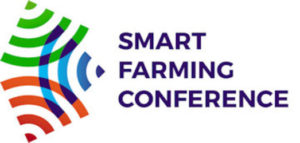
![]() Smart Farming Conference
Smart Farming Conference![]() October 9, 2020
October 9, 2020
![]() Online
Online![]() Info
Info
The conference is going to focus on precision agriculture, available technologies for farming (i.e. drones, sensors, Internet of Things, Multi-spectral imaging, Robotics, Big Data, AI and more), plant and crop science for improved resource-use, investment in R&D, new business models and cross disciplinary themes.
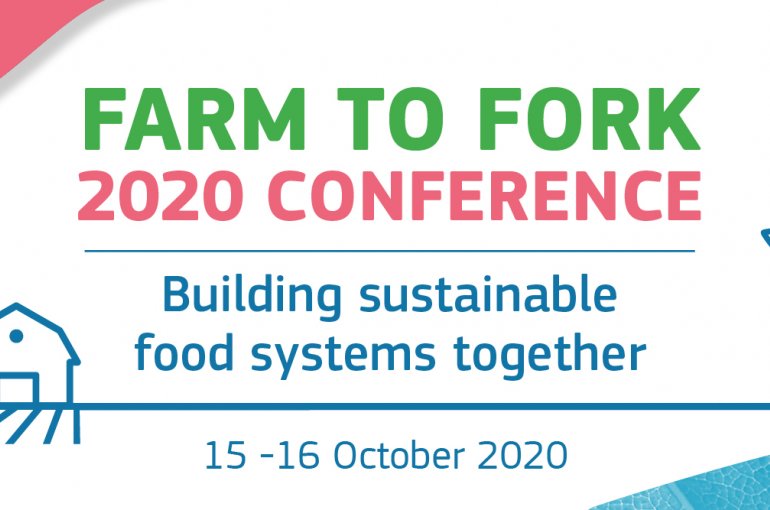
![]() Farm to Fork 2020 virtual conference
Farm to Fork 2020 virtual conference![]() October 15-16, 2020
October 15-16, 2020
![]() Online
Online![]() Info
Info
The 'Farm to Fork' conference is the first in of what will be an annual gathering of European stakeholders. Stakeholders across the food value chain, are invited to join the debate and contribute to the implementation of the recently adopted Farm to Fork Strategy for a fair, healthy and environmentally-friendly food system, which is at the heart of the European Green Deal.
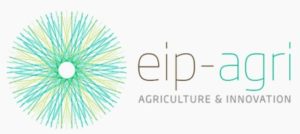
![]() EIP-AGRI workshop: Shaping the EU mission ‘Caring for soil is caring for life’
EIP-AGRI workshop: Shaping the EU mission ‘Caring for soil is caring for life’![]() 20-21 October, 2020
20-21 October, 2020
![]() Online
Online![]() Info
Info
The aim of this EIP-AGRI workshop is to introduce this Mission, and to consult farmers and foresters, advisers and other stakeholders from different regions in Europe on the goals proposed by the Mission Board. Participants will be able to learn more about the Mission and some of its major building blocks, such as living labs and lighthouse farms. Discussion sessions will enable them to exchange ideas on ways for the Mission to achieve its objectives, on the most urgent research and innovation needs from practice, and on practical needs for implementing the proposed actions.

![]() 2020 8th International Conference on Sustainable Environment and Agriculture
2020 8th International Conference on Sustainable Environment and Agriculture![]() October 22-24, 2020
October 22-24, 2020
![]() Lisbon, Portugal
Lisbon, Portugal![]() Info
Info
The 2020 8th International Conference on Sustainable Environment and Agriculture (ICSEA 2020) is one of the leading international conferences for presenting novel and fundamental advances in the fields of Sustainable Environment and Agriculture. The conference will bring together leading researchers, engineers and scientists in the domain of interest from around the world.
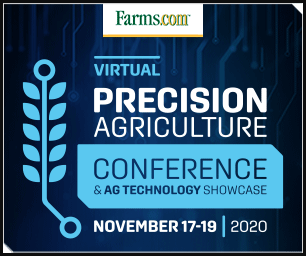
![]() 2020 Virtual Precision Agriculture Conference & Ag Technology Showcase
2020 Virtual Precision Agriculture Conference & Ag Technology Showcase![]() November 17-19, 2020
November 17-19, 2020
![]() Online
Online![]() Info
Info
Farms.com has established its conference as one of the best events to learn about the latest in the precision agriculture industry, bringing together hundreds of precision agriculture enthusiasts. The day-and-a-half program is comprised of expert speaker presentations, as well as hands-on workshops.
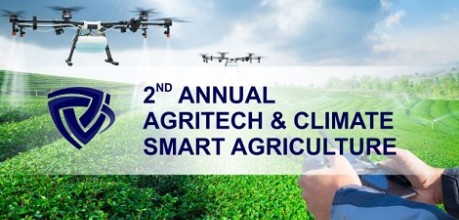
![]() 2nd Annual Agritech & Climate Smart Agriculture Conference 2020
2nd Annual Agritech & Climate Smart Agriculture Conference 2020![]() November 24-25, 2020
November 24-25, 2020
![]() Krakow, Poland
Krakow, Poland![]() Info
Info
The event offers a meeting place for top manufacturers, researchers, decision-makers, and business professionals who are keen to share their knowledge and experience in optimizing the agricultural farming process. The conference will provide valuable insights in the sphere of agriculture technologies.

![]() AgriTech 2020 - International Agriculture and Technology Summit & Exhibition
AgriTech 2020 - International Agriculture and Technology Summit & Exhibition![]() December 1-2, 2020
December 1-2, 2020
![]() Amsterdam, Netherlands
Amsterdam, Netherlands![]() Info
Info
The Future of Agriculture and Farming will be tackled in the AgriTech summit and amongst the Key Topics & Sessions are Sustainable Approaches to Agriculture & Farming, Latest Technologies & Strategies in AGTech, Data Management and Simulation Concepts and Precision Livestock Farming

![]() World Agri-Tech Innovation Summit
World Agri-Tech Innovation Summit![]() March 9-10, 2021
March 9-10, 2021
![]() San Francisco, USA
San Francisco, USA![]() Info
Info
The World Agri-Tech Innovation Summit is a world-leading event series focused on the most disruptive technologies transforming the global food system. Agribusinesses, food brands, producers, investors and entrepreneurs meet to foster learning, explore collaboration and investment strategy needed to bring transformative solutions to the food system, and fast-track innovation to the field.
Network of Interest
We invite you to join the STARGATE Network of Interest to build a dynamic group of Stakeholders with the ambition to set an interactive network of interest, aiming at discussing challenges and opportunities arising for resilient farming systems.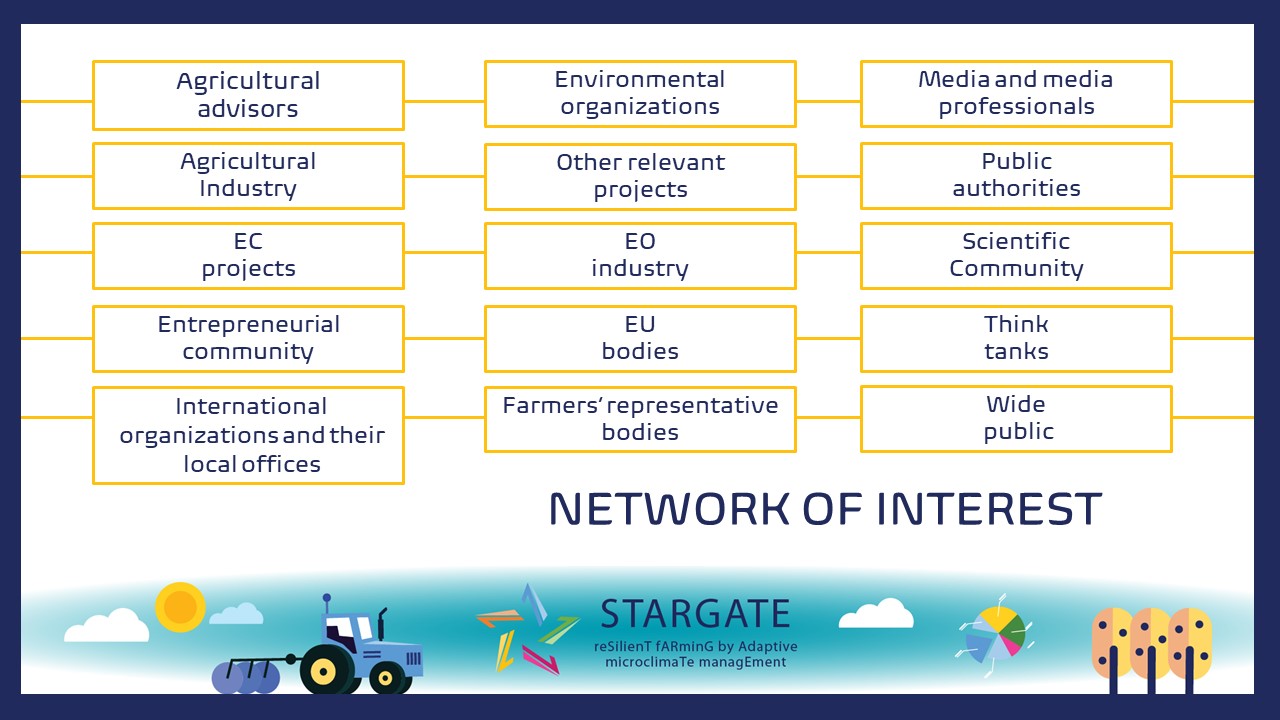
All members of the network will be encouraged to participate in technical/scientific discussions through the project website and other means of communication. Additionally, learning workshops will be implemented to share lessons learnt from the pilot deployment and become the basis for recommendations.
Publications to read
![]() Common ground: Restoring land health for sustainable agriculture, INTERNATIONAL UNION FOR CONSERVATION OF NATURE (2020)
Common ground: Restoring land health for sustainable agriculture, INTERNATIONAL UNION FOR CONSERVATION OF NATURE (2020)
This IUCN report shows that common ground between the agriculture and conservation sectors for mutually beneficial action exists, and that there is great potential for widespread adoption of sustainable agricultural practices that can meet our needs for food, feed, fibre, and energy. More widely, sustainable agriculture can contribute to food, water security, climate regulation and other objectives, supporting progress towards the Sustainable Development Goals and other international targets for climate change, biodiversity and land degradation [PDF].
![]() The potential of agroecology to build climate-resilient livelihoods and food systems, FOOD & AGRICULTURE ORGANIZATION OF THE UNITED NATIONS (2020)
The potential of agroecology to build climate-resilient livelihoods and food systems, FOOD & AGRICULTURE ORGANIZATION OF THE UNITED NATIONS (2020)
This study elaborates on existing links between agroecology and climate change. It provides evidence on the technical and policy potential of agroecology to build resilient food systems. Inspired by the idea that transformation will only happen through a coordinated approach among all levels, the study was jointly developed by a broad set of actors from UN agencies (FAO), research institutes (FIBL, Bioversity, ISRA) and CSOs (Biovision, Enda Pronat, ICE) and thus combines evidence from a broad range of backgrounds and perspectives [PDF].
![]() Approaches to sustainable agriculture: Exploring the pathways towards the future of farming, INTERNATIONAL UNION FOR CONSERVATION OF NATURE (2020)
Approaches to sustainable agriculture: Exploring the pathways towards the future of farming, INTERNATIONAL UNION FOR CONSERVATION OF NATURE (2020)
This report examines a number of approaches to sustainable agriculture, as well as supporting activities. The approaches include: agroecology, nature-inclusive agriculture, permaculture, biodynamic agriculture, organic farming, conservation agriculture, regenerative agriculture, carbon farming, climate-smart agriculture etc. The approaches examined in this report all share the common goal of striving for sustainability, which includes environmental aspects but also socio-economic considerations [PDF].
Stay updated
Do you want to stay updated with all the latest on the STARGATE project?
sign up today to our mailing list...
and don’t forget to follow us on social media...
PROJECT COORDINATOR: Professor Dimitrios Moshou, dmoshou@auth.gr


